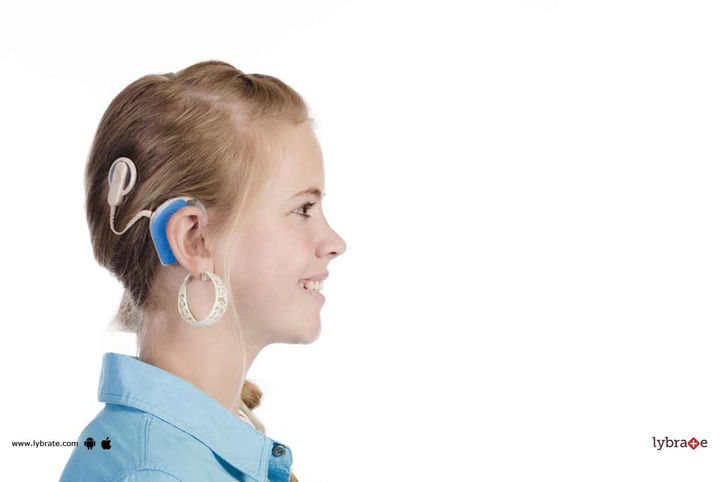Cochlear Implant - Know Utility Of It!
A cochlear implant is an electronic device that is used to restore hearing ability in people who suffer from hearing loss due to inner ear damage. Unlike hearing aids which amplify sounds so people with hearing loss are better able to perceive them, cochlear implants directly transmit electronic sound signals to the auditory nerve. They work by compensating for damaged cochlea, the part of the inner ear that converts sound waves into neural impulses which are perceived by the brain.
- A child who cannot hear will also never be able to speak.
- Inability to hear and speak puts a person at a disadvantage in society.
- Simple tasks like talking on the phone which we take for granted become impossible.
- Conventional methods of learning like attending a classroom lecture become impossible.
- Brain development and intelligence is closely linked to the development of speech and language.
- Inability of parents to communicate with the child leads to emotional distancing.
- Integrating a hearing disabled person into society becomes a frustrating experience for all involved.
- Cost of integration per capita is much higher when compared to the cost of Cochlear Implant.
- Children with Cochlear Implants are fully integrated into society with normal hearing & speech.
- Children with Cochlear Implants can attend regular schools & colleges
- Early identification of hearing impairment gives children a better chance of developing speech and language skills, and of making the most of social and emotional interaction from an early age.
Cochlear implants offer a multitude of benefits to people experiencing hearing loss, especially infants and children with severe hearing loss who are just starting to process language and speech. Some of these benefits are:
- Hearing and communication – Cochlear implants improve hearing significantly, especially to a level where normal communication can be restored. It enhances the person’s ability to hear speech without relying on visual cues such as lip reading or hand signs. It makes telephonic conversation a lot easier. Cochlear implants also help people regulate their own voice and volume so that it is easier for others to understand them.
- Quality of life - It can help people with hearing loss listen to and enjoy music and also watch television with sounds. It helps people listen to sounds in a noisy environment and differentiate soft sounds from loud ones.
- Safety – Cochlear implants enhance the individual’s safety as it allows the person to be able to hear warning sounds like honking cars or ambulance sirens. This will allow people to navigate public spaces in a much safer way.
- Society - For children with hearing loss, cochlear implants can help them adjust a lot better to regular schools instead of requiring special institutions.
- Brain development - It can help infants with cochlear damage develop their speech recognition and speaking skills much faster.
Cochlear implants
- Only device of its kind that can restore a special sense.
- Consists of 2 parts-
- One part is surgically implanted in the body
- Second part is worn behind the ear and communicates with internal part using wireless signals
- Persons of any age can get a cochlear implant, from less than one-year-old children to 90-year-old persons have received implants all around the world.
- Cochlear implants can be done for partial hearing loss also, know as Hybrid implant that preserves the residual natural hearing and augments hearing only in certain sound frequencies in which hearing loss is present.
- Are being used for indications other than hearing loss also like Tinnitus.
- Surgery is a daycare procedure for most patients.
Consult a doctor to get a clear assessment of whether you would be an eligible candidate for a cochlear implant and what to expect from the procedure.



+1.svg)
